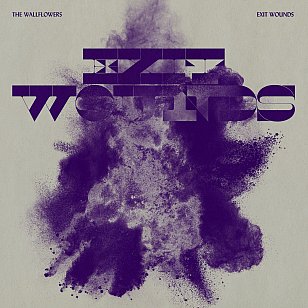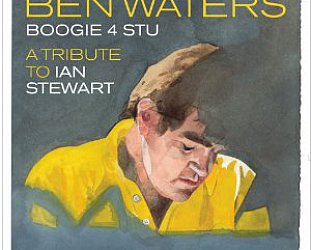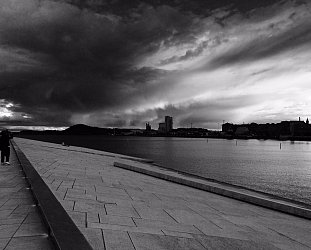Graham Reid | | 2 min read

That being the famous surname.
Given his achievements at that point, his dad was a subject easy to not let into the conversation.
This Dylan can be as emotionally reserved as his father as was evident in his recent doco Echo in the Canyon when he interviewed many of the Laurel Canyon legends of the Seventies. He was model of quiet, respectful and expressionless concentration when the famous folk answered his questions.
In the concert sequences he seemed to be a little more emotionally forthcoming.
A genuine song craftsman, it has however become a commonplace to note his songs perhaps owe more to the Traveling Wilburys than anything by his father.
But that ceased to be true some time back and Exit Wounds – the seventh studio by the Wallflowers, and he has released three solo albums – occupies broad musical and lyrical territory.
There are touchstones in country-rock (Shelby Lynn on backing vocals in places), a little Springsteen in the ballads (despite that Darlin' Hold On with Lynn sharing the verses is lovely), Petty-rock (Move the River) and resonances (in his delivery and the melodies) of Warren Zevon (early and late period) on songs like Roots and Wings where the music suggests something far more upbeat than the lyrics offer.
Dylan works interesting, opposing ideas throughout (the addictively melodic I Hear the Ocean When I Wanna Hear Trains, I'll Let You Down But Will Not Give Up) and these songs written in pre-Covid but seriously damaged America under Trump have drops of acidic disappointment which come with the lacquer of personal relationships.
There are some excellent songs here: The rocking Dive Bar in My Heart throws out a verse as pointed and poisonous as this: “See her on this side of town. It's not your people or your kind of crowd, just nobodies here, who's drinking flat beer, away from the battleground. There's no sleigh bells in winter time, there's no top shelf or decent wine, there's another slow jam, same awful band.
It's the last stop, the end of the line. You're on the list or I'm easy to find, in a dive bar in my heart”.
Ouch.
Then there's something as distilled and as self-aware as Wrong End of the Spear: “First sign of trouble you take to the woods, with your slippers and your hair pulled under your hood . . . looking for cover like you've never had to. Knowing it gets worse before it ever gets good, cause something's wrong and something is near. It slowly advances and has us surrounded here. If I'm right then it's clear, I'll be on the wrong end of the spear”.
Ouch-ouch.
Jakob Dylan has made more-than-decent albums in the past – the Wallflowers' Bringing Down the Horse in '96 announced his talent, Breach and Red Letters Days in the early 2000s confirmed it – but this one, which shifts from literate ballads to Costello-nasty post-punk rock (Who's That Man Walking Round My Garden?), is his best yet.
Just for fun let's make the Bob comparison: at Jakob's age his dad was doing folk covers in search of his muse (World Gone Wrong).
Yep, comparisons are not just odious but pointless.
Jakob Dylan is very much his own man here.
Always has been in fact.
.
You can hear and buy this album on bandcamp here





post a comment